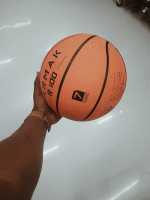
11 Dec NBA Bubble Demonstrates Travel Effect on Basketball Performance
MedicalResearch.com Interview with:

Dr. McHill
Andrew W. McHill, PhD
Research Assistant Professor
Oregon Institute of Occupational Health Sciences
Oregon Health & Science University, Portland OR
Portland, OR 97239
MedicalResearch.com: What is the background for this study?
Response: It has long been known that there is a home court advantage in sports, whether it be due to the home fans cheering, playing within familiar settings, or travel of the opposing team. However, the contribution of travel to home-court advantage could never be fully teased apart due to all the confounds of the other aspects of playing at home.
In March, the National Basketball Association had to pause their season due to COVID-19 concerns, only to start again several months later with the top 22 teams playing in a “bubble” environment where no teams were required to travel. This created a ‘natural experiment’ wherein we could test the impact of travel on winning and performance before the COVID-19 shutdown with games played in the bubble environment with no travel.

MedicalResearch.com: What are the main findings?
Response: We found that traveling does in fact impair winning percentage, and different aspects of travel impact different areas of basketball performance. For example, travel in general impairs effort-related performance (i.e., rebounding), whereas travel across times zones impacts accuracy-related performance (i.e., shooting accuracy); these two outcomes were unchanged in the bubble, suggesting it is travel driven.
MedicalResearch.com: What should readers take away from your report?
Response: Our findings suggest that basketball-related performance is differentially impacted depending on type of travel. For example, misaligning your internal body clock by crossing time zones (i.e., jetlag) impairs precision and accuracy, whereas travel in general, including staying within the same time zone, impairs effort-related statistics which could be driven by impaired sleep and the rigors of travel.
MedicalResearch.com: What recommendations do you have for future research as a result of this study?
Response: I think this research could potentially be used in designing travel schedules and creating game strategies depending on the type of travel a team is doing before a sporting event. Future work, in collaboration with sports teams, is needed to test these ideas.
MedicalResearch.com: Is there anything else you would like to add? Any disclosures?
Response: The internal body clock and poor sleep impair many aspects of health and performance, and this is just one of many examples of what happens when we work against our physiology. We should prioritize sleep when possible and attempt to do activities when our internal body clock is optimally promoting those activities to be done (sleep during the night, eating and being active during the day). I have no conflicts to disclose, though I am an avid Portland Trail Blazers fan.
Citation:
McHill, A.W., Chinoy, E.D. Utilizing the National Basketball Association’s COVID-19 restart “bubble” to uncover the impact of travel and circadian disruption on athletic performance. Sci Rep 10, 21827 (2020). https://doi.org/10.1038/s41598-020-78901-2
The information on MedicalResearch.com is provided for educational purposes only, and is in no way intended to diagnose, cure, or treat any medical or other condition. Always seek the advice of your physician or other qualified health and ask your doctor any questions you may have regarding a medical condition. In addition to all other limitations and disclaimers in this agreement, service provider and its third party providers disclaim any liability or loss in connection with the content provided on this website.
Last Updated on December 11, 2020 by Marie Benz MD FAAD
